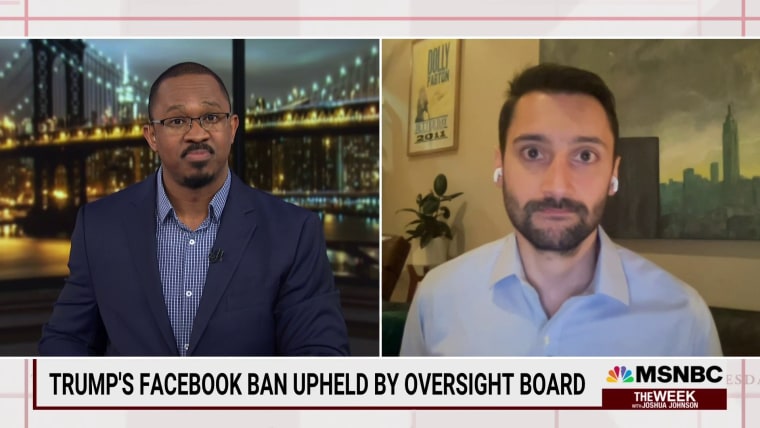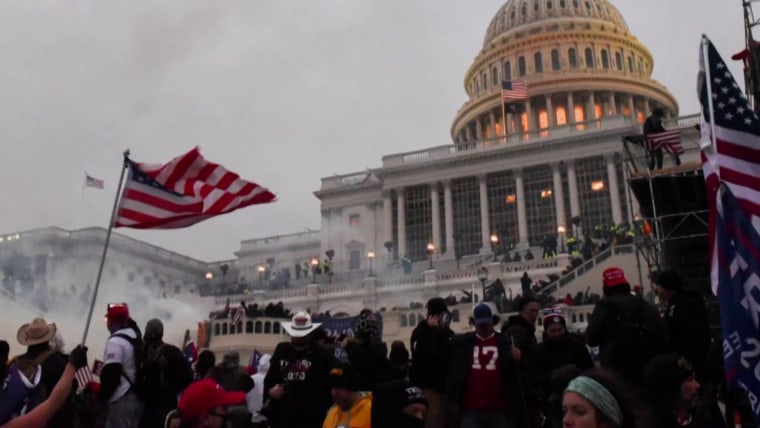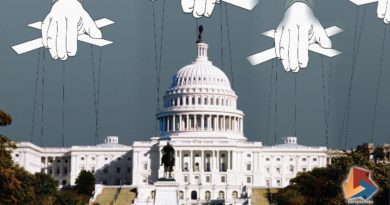Bigger than QAnon: Democrats can’t ignore the GOP’s holy war
For millions of Americans, the coming era of politics — present and future, decided election by election and bill by bill — amounts to nothing less than a holy war, waged by the armies of the righteous against the infidels.
Across the United States, from coast to coast, this zealotry is on the march, tramping in time to a steady stream of right-wing propaganda. The rhythm twists the truth and revels in outright falsehood with gleeful, unapologetic bellicosity, as it drums up the masses to a fever pitch of righteous rage. The sentiments that these Republicans share differ at times in the particulars — not all believe, for example, that the Democratic Party is a front for blood-drinking, Satanic pedophilia, but many do.
What they all share is a central, apocalyptic commonality. Whether they believe, as 56 percent of the Republicans do, that the 2020 election was stolen from Donald Trump in plain sight or that the dual specters of socialism and anti-white racism stand to destroy their faith and lives if given any quarter, the message, and its galvanic effect, is ultimately the same.
In this context there is little incentive for these true believers to adhere to the quibbling pieties of the democratic process, or to fairness, or even to accept any loss as legitimate. If one believes a priori that one’s opponents are thieves, would-be totalitarians, drinkers of children’s blood, wresting back power becomes in and of itself a moral imperative, regardless of the means. The storming of the Capitol on Jan. 6 begins to make sense if you realize that the thousands in the crowd saw themselves as foot soldiers in a war, self-described patriots battling for the soul of their country, with fists, fire extinguishers and flagpoles.
If one believes a priori that one’s opponents are thieves, would-be totalitarians, drinkers of children’s blood, wresting back power becomes in and of itself a moral imperative, regardless of the means.
The forward march of cruel and paranoiac sentiment has continued unabated, unfurling in hundreds of voter-suppression bills, in various races in which elected officials who sought to overturn the 2020 election are running to officiate the next. The thousands who participated in “Stop the Steal” marches across the country, and the tens of thousands more who sympathize, will not readily relinquish such load-bearing beliefs, which shape their sense of the fundamental illegitimacy of politics in this country. Millions stand in readiness, whipped further into anger each day, ready to breach as many walls as possible to make good their vision of a paradise on earth in which their opponents are given swift and thorough retribution: an earthly crusade, laid out in the language of salvation and damnation, preached from the pulpit and in the public square.
On the federal level, there is a yawning chasm between how the Republican and Democratic Parties are responding to this din outside the gates — and in turn how they view the past, present and future of American politics. Many liberals are prone to state that in contrast to the right-wing worldview, Democratic officials are near-universally tethered to facts, fundamental and evident truths, and less willing to descend into the deeps of paranoiac fantasy. In a broad sense, this is the case.
But there is a widespread delusion among the ranks of Democratic senators and representatives. Their shared belief in bipartisanship, as not only a moral good in its own right but something necessary and, above all, feasible, is one that bears as tenuous a relation to reality as any pizzagater’s convictions. In the protracted and painful negotiations over an infrastructure bill, in which Republicans present miserly, bad-faith proposals that they will still en masse refuse to vote for, progressive lodestars like a public option for health care and a raising of the federal minimum wage have curdled, dried out and been left by the wayside.
Meanwhile, Sens. Joe Manchin, D-W.Va., and Krysten Sinema, D-Ariz., in their steadfast refusal to abolish or even modify the filibuster that hobbles the accomplishments of single parties without supermajorities, represent a quieter but substantial percentage of their peers who yearn for cooperation with the Republican faction. Perhaps haunted by the forlorn ghost of Walter Mondale failed presidential bid or Jimmy Carter’s single term, Democrats yearn to prostrate themselves, self-flagellating, offering penance at their constituents’ expense for daring to exhibit any action that matches their self-professed political principles.
In the current climate, however, with a base as bullish and bedeviled and fundamentally rage-fueled as the Republicans possess, and given the steady drift toward extremism among the ranks of even the party’s hoariest senators, the fantasy of bipartisanship is just that: a fantasy. It is a yearning for an imprimatur of legitimacy that cuts through such inconveniences as fact, optics and the past six years of American civic decline.
Democrats’ prayer for bipartisanship is a belief no less fanatical and damaging than any of the eccentricities of Q.
And in pursuit of this foolish, faithful dream, Democrats are sacrificing their precious few months of trifecta governance, refusing to act to shore up voting rights, as Manchin made clear in his puerile and fatuous op-ed over the weekend. They’re also choosing not to protect the rights of persecuted transgender individuals at the federal level through the Equality Act or ease the immiseration of millions of low-wage Americans who have suffered through a pandemic that has killed 600,000 people in the U.S.
Their prayer for bipartisanship is a belief no less fanatical and damaging than any of the eccentricities of Q-believers, and perhaps even less tethered to the contemporary landscape. It is one whose damage is more quietly done, however — in unjust laws left to stand, in women suffering for lack of reproductive health care, in 40-hour workweeks that become 80-hour workweeks for want of enough pay. Lives foreshortened, rendered impoverished and subject to discrimination, not because of cowardice, but because of a pious, studied naïveté.
The present and near future of American politics, then, is a conflict between these two faiths: one which has at its core a desire to annihilate, another built around the desire to submit. In this grim circumstance, it’s hard to see a path forward for any progressive dream — and easy to see a descent into a far-right future whose swath of destruction will move forward irrespective of the niceties of lawful governance. Those who dismiss the belief of millions of Republicans in what they say openly that they believe — in a stolen election, in the fundamental inhumanness of their political opponents — and make light of its most outlandish manifestations risk a complacency that will cost them dearly. Without arming holy war ourselves, the least we can do is ask our elected officials to recognize the urgency of what is unfolding around them — and to abandon, long past its time, a faith in cooperation with those who seek none and desire everything.




